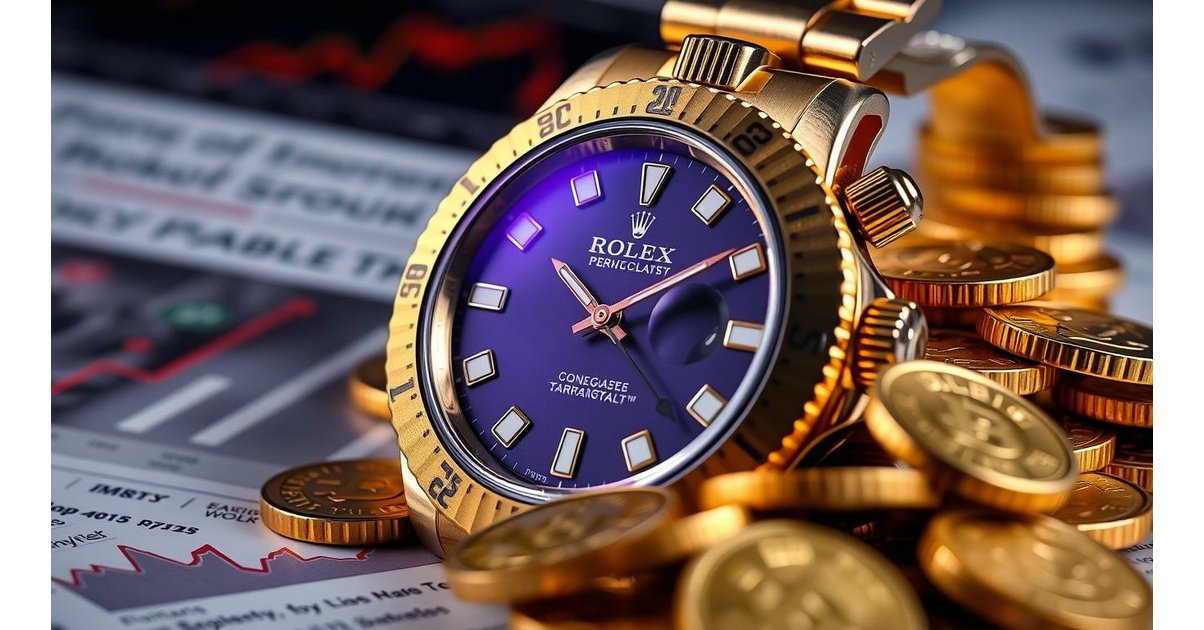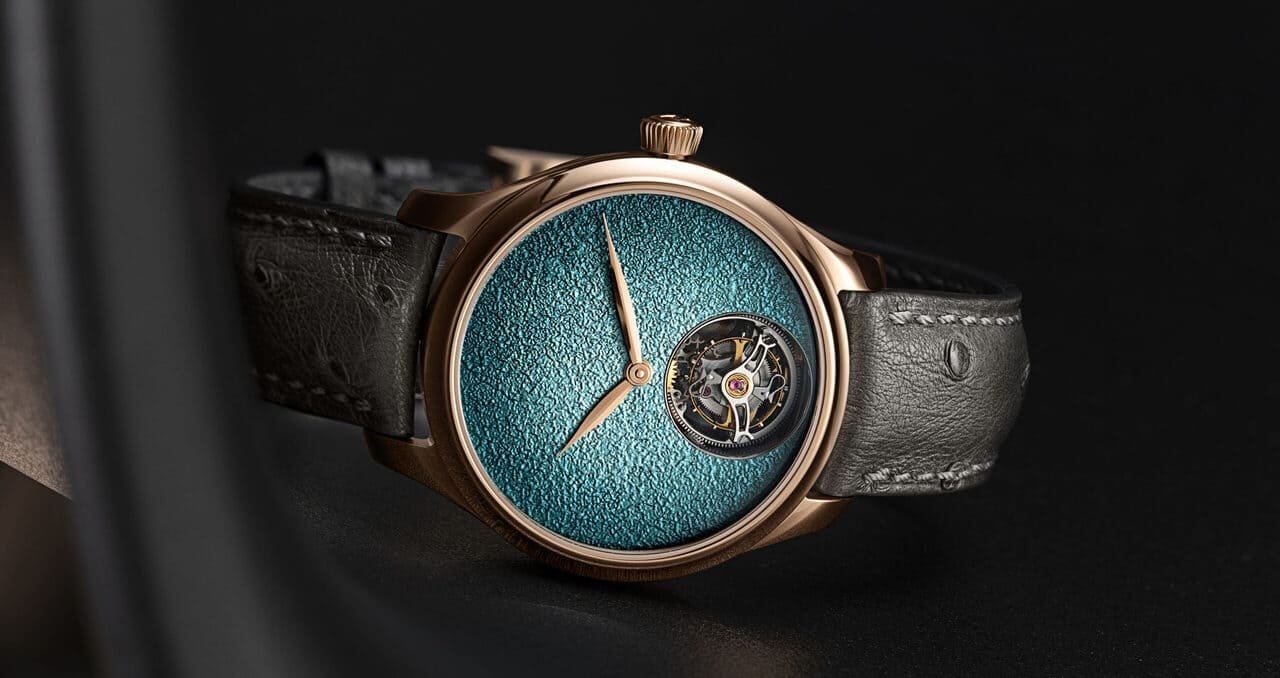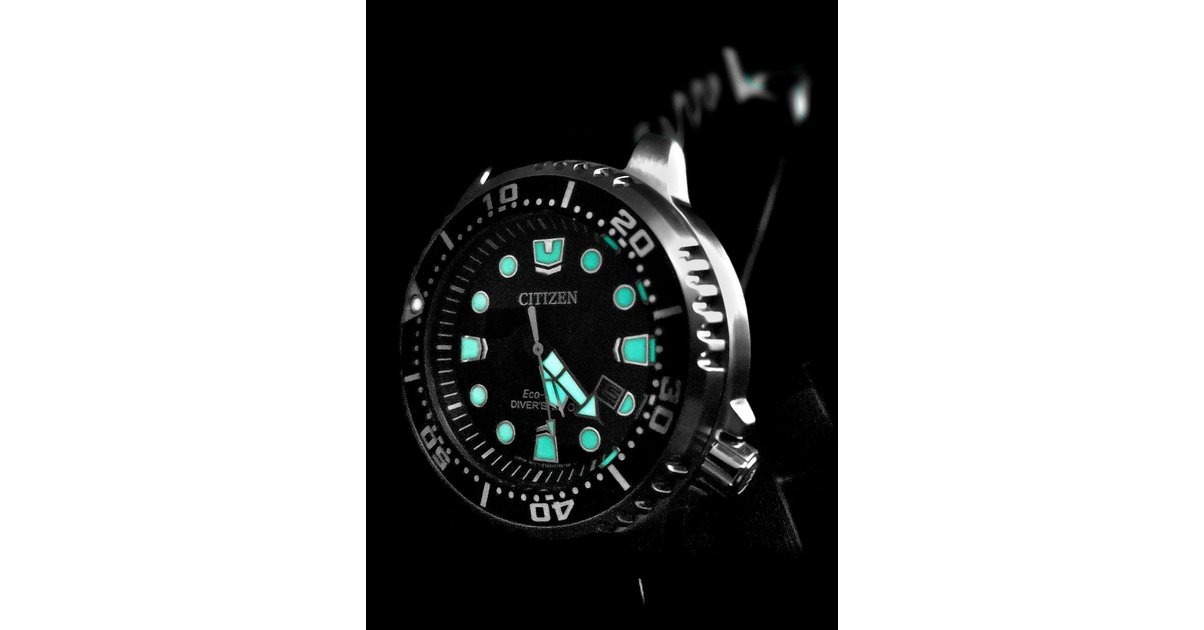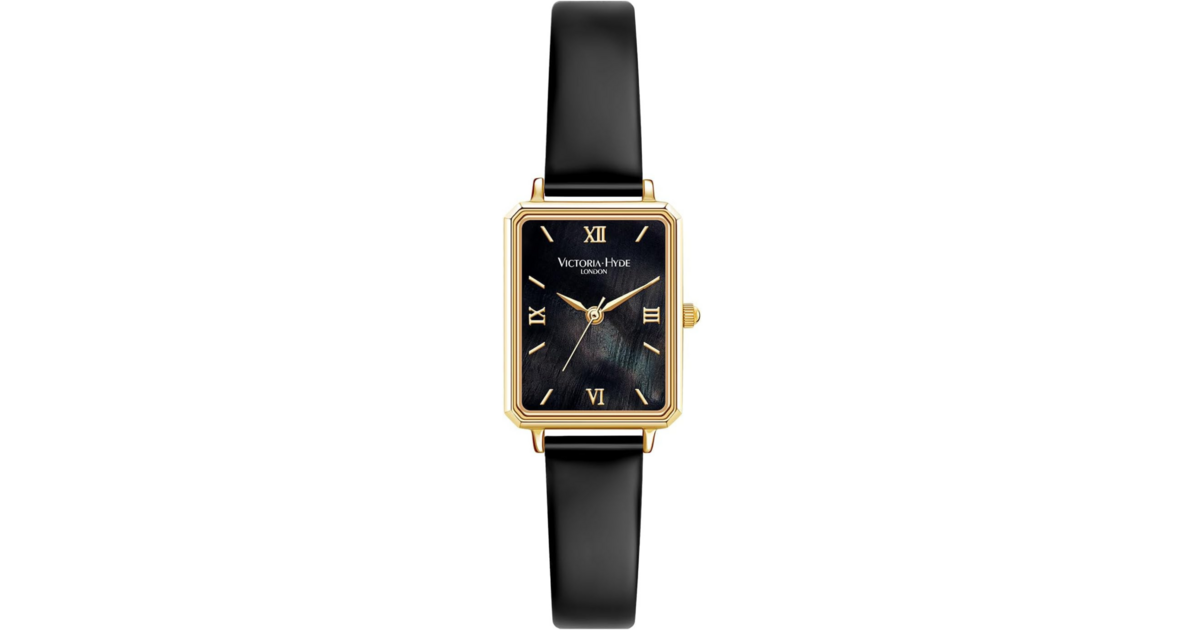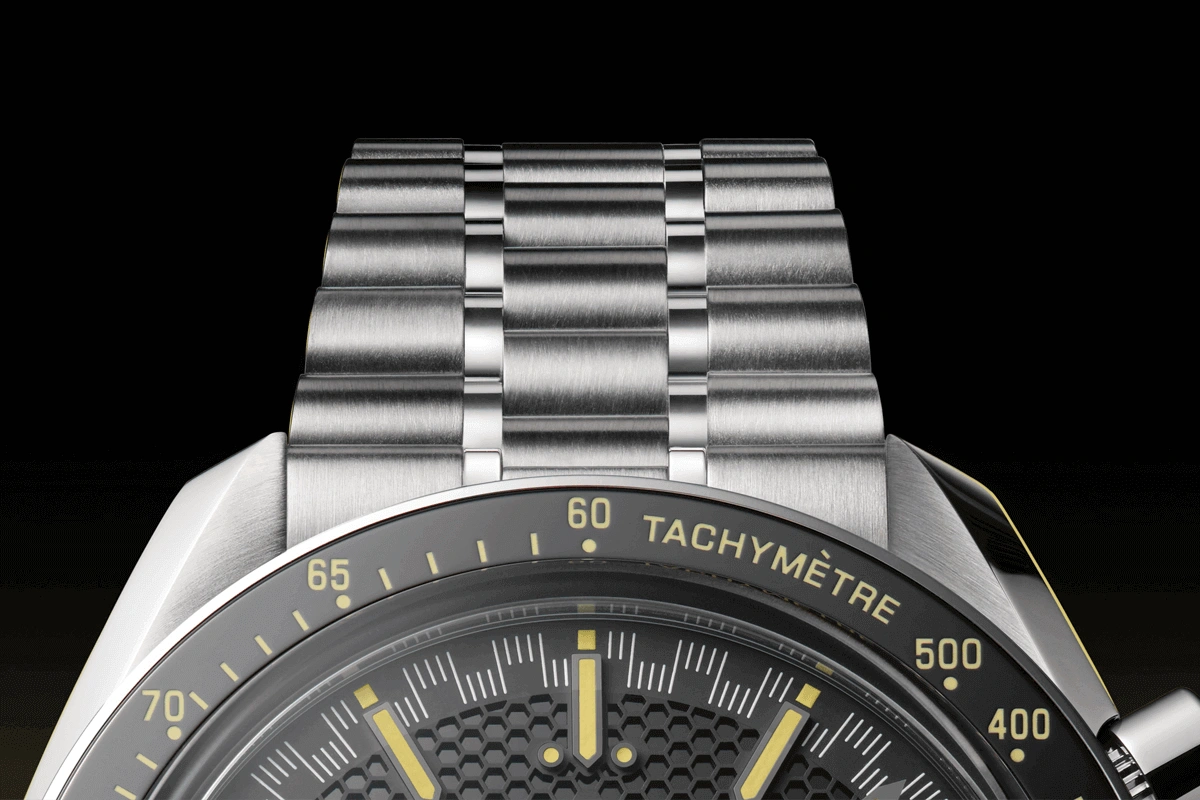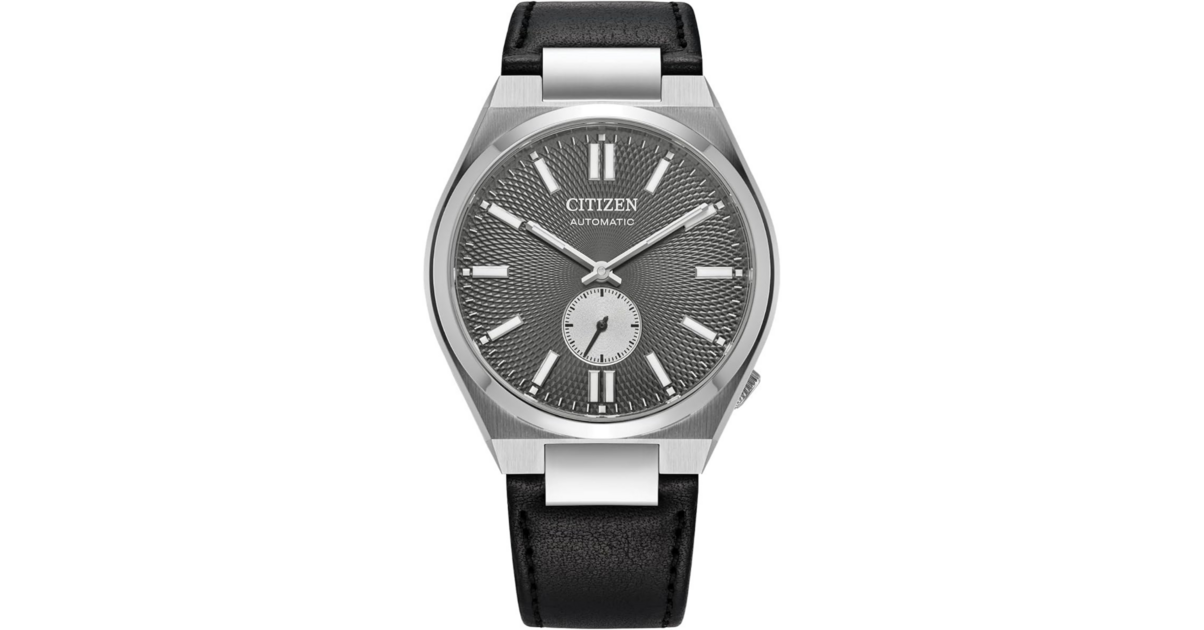Table of Contents
The 4% price increase is not just a number. It’s a statement. Rolex shows its iconic status in the world of luxury watches. It pushes the limits of exclusivity and prestige.
Key takeaways
- Average Rolex price increase: 4%
- Most impacted models: Daytona, Submariner, GMT-Master II
- Strengthening the luxury brand image
- Increased exclusivity strategy
- Significant impact on the watch market
The impact of Rolex increases on the luxury market in 2025
The world of luxury watchmaking is changing quickly. Rolex prices have increased, which raises questions. Fans and collectors are intrigued.
The economic context of luxury watchmaking
THE luxury market is in full transformation. Rolex made 10.7 billion euros in 2024. They produce over a million watches every year.
- Annual production: More than a million watches
- 2024 turnover: 10.7 billion euros
- Average price increase: Up to 8%
The reasons behind this pricing strategy
Rolex’s pricing strategy is complex. Commodity costs, such as gold and steel, play a key role.
| Model | Old Price | New Price | Increase |
|---|---|---|---|
| Day-Date yellow gold | €41,000 | €44,200 | 8% |
| Steel models | Variable | +3% | 3% |
Reactions from the market and collectors
Collectors have varied opinions. Some believe these higher prices are a sign of quality and investment. Others wonder if these watches are getting too expensive.
“Price increases paradoxically reinforce the desire and exclusivity of Rolex watches”
THE luxury market looks promising. Demand remains strong, much more than supply.
Rolex Increases the Price of Its Watches in 2025
In 2025, Rolex increases the prices of its luxury watches. This shows a major evolution in the world of watchmaking. The new prices reveal key changes for different models.
Rolex prices in 2025 vary depending on the collection. Here are the key points to know:
- Average price increase: 4.6%
- Precious metal models: increases of up to 14%
- Stainless steel watches: increases of approximately 1%
“The value of a Rolex exceeds its price, it is an investment over time”
THE luxury watches Rolex have seen significant price changes. For example :
- Day-Date in yellow gold: +5,200 euros
- GMT-Master II in yellow gold: +3,300 euros
- Daytona: increases of up to 6,000 euros
These new prices reflect several economic factors. In particular the increase in the price of gold by 27% in 2024. Rolex’s strategy is to maintain its reputation and the perceived value of its watches.
Detailed analysis of increases by collection
There pricing strategy of Rolex for 2025 shows interesting changes in its iconic collections. Each model sees its prices change, showing the value and prestige of the brand.
The Daytona and its new prices
There Rolex Daytonaa model dear to chronograph enthusiasts, has seen its price increase slightly. The reference 126500LN goes from €13,850 to €14,200, an increase of 2.7%. This increase shows that the model remains very attractive on the market.
- Former price: €13,850
- New price: €14,200
- Percentage increase: 2.7%
The price evolution of the Submariner
There Rolex Submariner remains a high-end choice with adjusted prices. Prices change from 1% to 1.5%, keeping its price accessible while confirming its status.
| Model | Old Price | New Price | Increase |
|---|---|---|---|
| Submariner without date | €8,400 | €8,500 | 1% |
Changes for the GMT-Master II
The GMT-Master II remains popular with prices rising in a targeted manner. The different versions have slightly different prices depending on the type of bracelet.
“Rolex’s strategy remains measured, favoring value and quality rather than a spectacular increase”
- GMT-Master II (Oyster bracelet): from €9,800 to €9,900
- GMT-Master II (Jubilee bracelet): from €10,000 to €10,100
These changes show that Rolex knows how to maintain its luxury while listening to collectors.
Rolex’s strategic withdrawal from Formula 1
Rolex changes strategy by leaving Formula 1. After 11 years, the luxury brand decides to leave at the end of 2024.
By withdrawing, Rolex can focus on more exclusive events. The brand wants to turn to niche competitions which show its prestige.
“Our vision is to partner with events that embody excellence and precision”
- New sporting targets for Rolex:
- 24 Hours of Le Mans
- FIA World Endurance Championship
- Gentleman driver competitions
LVMHvia TAG Heuer, takes over F1 sponsorship for $150 million per year. This shows the competition in the world of sports sponsorship luxury.
For Rolex, leaving Formula 1 is a chance to change its strategy. The brand wants to focus on events that match its luxury image.
The impact on waiting lists and availability
The prices of Rolex watches have increased in 2025. This is changing the way people access these watches a lot. Collectors and enthusiasts now have to be very strategic to get what they want.
Rolex has changed the way it sells. Waiting times vary greatly depending on the watch model:
- Submariner: 12 to 24 months
- Daytona: more than 24 months
- GMT-Master II: 18 to 36 months
- Datejust: 6 to 12 months
Managing current orders
Current orders are reordered. Finding a Rolex watch has become a big challenge. Retailers prefer customers who have already purchased from Rolex.
“Rarity has become the new standard of Rolex exclusivity”
New distribution policies
Rolex has implemented new criteria. The waiting list is no longer just a waiting period. Customers must show their passion to get their watch.
Demand is always greater than supply. Rolex watches are therefore even more desirable. Production times can last up to one year per model.
The repositioning of Rolex in the watch market
In 2025, Rolex changes strategy. It focuses on exclusive events. These events show timeless elegance.
- Participation in prestigious heritage events
- Targeting informed collectors
- Strengthening the high-end brand image
Key events in this news Rolex strategy are :
| Event | Features |
|---|---|
| Goodwood Revival | Celebration of classic motorsport elegance |
| Pebble Beach Concours d’Elegance | Showcasing vintage automotive and watchmaking heritage |
This strategy helps Rolex stand out in luxury. It focuses on quality and exclusivity. The goal is to create an emotional connection with enthusiasts who appreciate history and craftsmanship.
“We don’t sell watches, we tell stories of precision and passion”
The numbers show the success of Rolex. With growth of 11% and more than 30% market share, it remains the leader in luxury watches.
Alternatives for collectors and enthusiasts
Rolex prices have recently increased. Collectors are therefore looking for alternatives to maintain their passion for luxury watchmaking. THE vintage watches have become a very attractive investment in this context.
Vintage models: A strategic investment
THE vintage watches offer a unique opportunity to enthusiasts. Some old models have performed impressively:
- The Patek Philippe 3700 from the 70s grew by +2100%
- Some Rolex Datejusts have increased by more than 350% in the last ten years
- The GMT Master 2 “Batman” is now worth double its original price
Alternative luxury brands to consider
Several alternative luxury brands are of interest to demanding collectors:
| Brand | Secondary market performance | Annual production |
|---|---|---|
| Patek Philippe | +2.5x original price | Less than 1 million watches |
| Audemars Piguet | Royal Oak +180% | Limited production |
| Omega | Stable growth | Average production |
These alternatives offer interesting investment prospects. They also guarantee exceptional watchmaking quality.
“Watchmaking investment is not limited to a single brand, but adapts to market opportunities.” – Watchmaker expert
Diversify your collection with these alternative luxury brands. They promise remarkable performance and appreciation potential.
Future prospects for the crown brand
The future of Rolex looks bright with an innovative strategy. The brand is preparing a major transformation. It focuses on innovation and exclusivity, not just on prices.
- Development of advanced technologies
- Creation of ultra-exclusive limited editions
- Exploration of new market segments
Rolex’s strategy is based on key pillars:
| Strategic Axis | Objective |
|---|---|
| Technological Innovation | Integration of advanced materials |
| Exclusivity | Limitation of productions |
| Certification | Strengthening precision standards |
“Constant innovation is the key to sustainability in luxury watchmaking”
Rolex invests a lot in research. 95% of high-tech components are now developed in-house. This ensures full control over quality and innovation.
Collectors can expect innovative models. These models push the limits of precision and design. They keep the historic DNA of the brand.
Conclusion
Rolex has decided to change its prices in 2025. This shows the complexity of the luxury market. Understanding watch trends helps one see the importance of this decision.
The luxury watch market is changing. He wants to keep exclusivity and value. Rolex wants to prioritize quality and prestige, not quantity.
This development is a strong sign for enthusiasts and investors. Luxury watches are always a good investment. They can even double their value on the secondary market.
The future of watchmaking is bright. It mixes innovation, tradition and marketing. Rolex shows that it knows how to anticipate and influence the luxury market.
FAQs
Why is Rolex raising prices in 2025?
Rolex wants to keep its luxury image. Prices rise from 3.4% to 6.5% depending on the model. This helps maintain brand value and meets demand.
Which Rolex models are most affected by these increases?
The steel Daytona sees its prices rise by 6.5%. The GMT-Master II increases from 3.4% to 5.5%. The Submariner sees its prices rise from 3.4% to 4.5%.
How are collectors reacting to these increases?
Opinions are divided. Some understand Rolex’s strategy. Others wonder if these climbs are accessible.
Many are turning to vintage models. Others think of brands like Omega or Patek Philippe.
Has Rolex changed its marketing strategy recently?
Yes, Rolex has changed. He has retired from Formula 1. He focuses on exclusive events like the Goodwood Revival.
He also participated in the 24 Hours of Le Mans and the Pebble Beach Concours d’Elegance. This targets a more specialized audience.
How do these increases affect current orders?
Higher prices affect orders already made. Rolex is adjusting its policies to maintain the exclusivity of its models.
What are the future prospects for Rolex?
Rolex wants to continue moving upmarket. He thinks of innovations and limited editions. He also wants to explore new markets while remaining exclusive.
Why is the luxury market accepting these increases?
The luxury watch market is in demand. The rarity and prestige of Rolex justify these higher prices.
What alternatives can enthusiasts consider?
Fans can look for vintage watches Rolex. They can also explore other brands like Omega or Patek Philippe.
There are also cheaper models but of similar quality.
